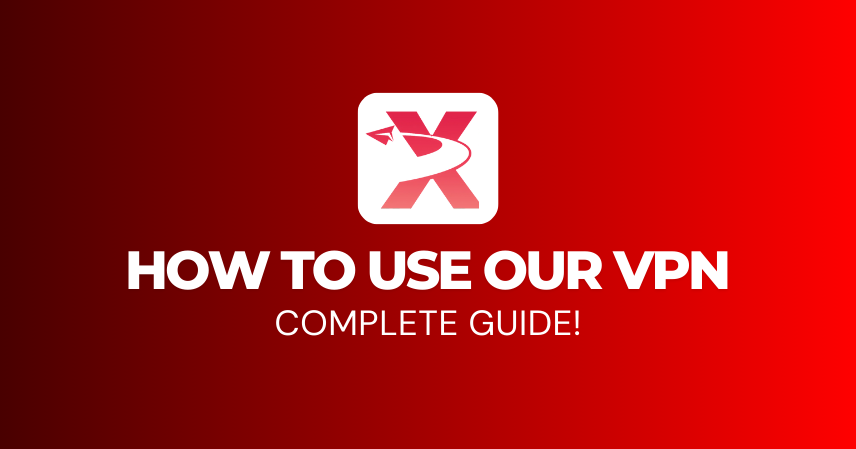
Secure your digital life with 3 easy steps:
How to Download & Setup Your VPN
Install The VPN
Install the app that will be included with the IPTV credentials we sent to you via email on your device.
Login to your account
Sign in using the email and password you received in your email.
Connect the VPN
After logging in, connect to your preferred server and enjoy streaming without geo-restrictions and with complete safety!
Download VPN for All Your Devices
VPN technology allows you to create a secure and private connection over a public network, such as the Internet. It acts as a tunnel between your device and the internet, encrypting your data and routing it through a virtual server located in a different location.
As a result, you can enjoy a safer internet and protect yourself from viruses, malwares, cyber-attacks, and hackers using a VPN.
It also allows you to browse or stream geo-blocked content on famous streaming platforms such as Netflix, Hulu, Amazon Prime, etc.
VPNs also make you anonymous on public Wi-Fi networks and shield you from data leaks and malicious websites that steal sensitive information like credit card numbers.
Yes, a VPN hides your real location by masking your IP address and routing your internet traffic through a server located in a different geographical location.
This makes it appear that you are browsing the internet from that server’s location, effectively hiding your actual physical location.
By hiding your location, a VPN can help bypass content restrictions, access geo-restricted websites and services, and protect your privacy and anonymity online.
VPNs can be free or paid, but paid ones are generally more reliable. Paid VPNs offer more servers, better performance, and advanced security features. Free VPNs are unsafe and may have limitations like fewer servers and slower speeds.
Choosing a paid VPN is recommended if you need more servers and better performance, especially for activities like accessing sports content.
VPN protects you from hackers by encrypting your internet traffic and hiding your IP address. This makes it difficult for hackers to intercept and decipher your data.
However, it’s important to note that a VPN cannot protect against all types of cyber attacks, such as malware and phishing.
It’s recommended to use additional security measures like antivirus software, internet security, and active firewalls for comprehensive protection against hackers.
You need a VPN fundamentally in the following situations:
- When connecting to public Wi-Fi: Public Wi-Fi networks are often insecure, making it easier for hackers to intercept your data. A VPN encrypts your internet traffic, providing an extra layer of security when using public Wi-Fi.
- When accessing sensitive information: If you need to access sensitive information, such as online banking or personal accounts, using a VPN adds an additional layer of protection to keep your data secure.
- When bypassing geo-restrictions: Some websites and streaming platforms may have geo-restrictions limiting access based on location, a VPN allows you to change your location and access geo-blocked content from anywhere.
- When maintaining privacy online: If you value your privacy and want to keep your online activities private from ISPs, advertisers, or government surveillance, a VPN can help mask your IP address and encrypt your internet traffic.
- When torrenting or file sharing: Torrenting is illegal in many countries for copyright violation. Using a VPN can help protect your identity and keep your downloads private from prying eyes while torrenting (P2P).
Overall, using a VPN is recommended whenever you want to enhance your online security, privacy, and access to restricted content.
Whether you should use a VPN all the time or not depends on your needs and preferences. If you need private and secure access to the internet 24/7, keep the VPN connected. Leaving the VPN connected will protect you from many threats.
While VPNs offer benefits like enhanced security, privacy protection, and access to restricted content, there are also downsides to consider.
These include potential slowdowns in internet speed and some websites or streaming services blocking VPN usage. Choosing a reputable VPN provider that prioritizes privacy and meets your requirements is essential.
Using a VPN on your phone is highly recommended because it protects your internet activities and personal data from hackers by encrypting your data.
Secondly, it provides location privacy by masking your IP address. Additionally, it allows you to bypass geographical restrictions and access region-locked content.
Lastly, using a VPN on your phone ensures the security of your sensitive information, especially when connected to public Wi-Fi networks.
A VPN service can secure and maintain your privacy in many ways.
1. Hiding Your IP Address: When you’re connected to the internet without a VPN, your IP address is visible to websites and anyone who may be monitoring your traffic.
A VPN hides your IP address by routing your connection through one of its servers, masking your true identity. This makes it harder for third parties to track your online activities.
2. No Logging Policy: Reputable VPN services have strict no-logging policies, which means they do not keep any records of your online activity while connected to their server. This further helps maintain your privacy as there would be no traces of data that could be linked back to you.
3. Bypassing Geographic Restrictions: By connecting to a foreign VPN server, you can enjoy content that may be blocked or restricted in your region, such as streaming services or news websites. This ensures that you can remain informed and entertained while retaining anonymity.








